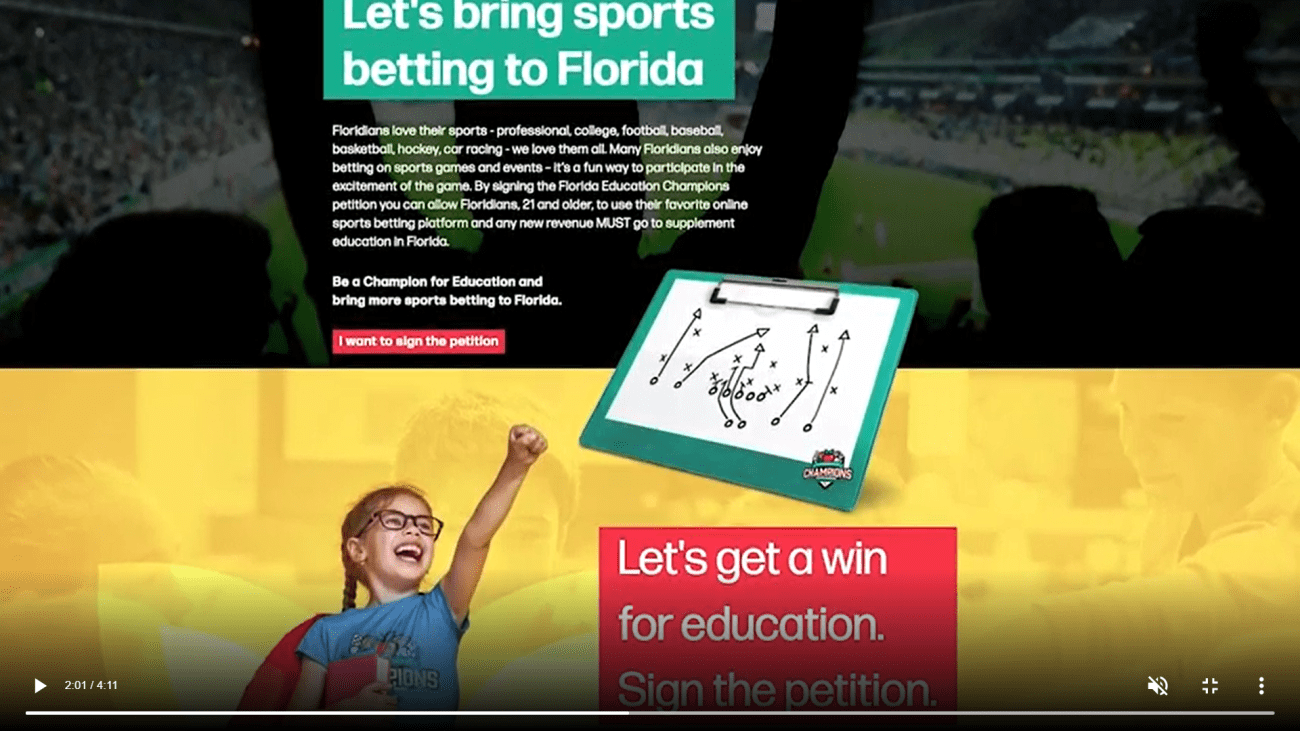
Want to vote yes on sports betting in Florida? OK, but don’t fall for another ‘Education Lottery’ con | Commentary
Orlando Sentinel | By Scott Maxwell | June 29, 2021
Gov. Ron DeSantis and the Florida Legislature want to give the Seminole Tribe a sweet deal — monopoly control over sports betting throughout the state of Florida.
Not surprisingly, the planet’s largest sports-betting companies object. So FanDuel and DraftKings are funding an amendment drive that would open up the market and allow more companies to compete for your gambling dollars.
To sweeten the deal, they’re promising that if voters approve statewide sports-betting, they’ll steer the tax proceeds to Florida schools.
There may be some fine reasons to support this amendment — including increased competition, which usually benefits consumers.
But please, for the love of all that is holy, don’t vote for this because you think it will do anything to help public education.
Because Floridians have been played for fools with one gambling grift already — back when they approved the “Education Lottery.”
It’s hard to even type those two oxymoronic words without laughing.
Florida runs America’s third largest lottery and yet ranks 44th in education funding, spending less money per pupil than states with no lottery at all.
We have an “Education Lottery” the way vampires have a “vegan diet.”
That’s because Tallahassee lawmakers played a shell game with lottery revenues. Yes, they spent the proceeds on schools. But they also started spending the money that used to go to schools on other things.
So much so that, when the Sentinel crunched the numbers 20 years after voters approved the lottery in 1986, we discovered Florida was actually spending a smaller percentage of its budget on education than it was before the “Education Lottery” came along.
There’s no reason to think the next gambling deal would be any different. Florida politicians simply can’t be trusted.
You already know this. You’ve passed mandates for smaller class sizes, Fair Districts and environmental spending, and seen lawmakers undermine them all.
To their credit, the organizers of the sports-betting campaign are trying to prevent legislative shell games by stating all new tax revenues must “supplement” existing education dollars. Theoretically, that means additional money. But politicians play word games. They could add one year’s betting revenues to a previous year’s education budget, making it all supplemental. But if they don’t also boost basic funding enough to keep up with inflation or population growth, the overall education-funding rate could still decrease.
The Do-it-for-the-schools! rallying cry seems more like a PR ploy than serious policy. Just like the “Education Lottery.”
The committee pushing this sports-betting campaign even named itself Florida Education Champions. And that’s cute. But DraftKings and FanDuel don’t exist to improve public education. They exist to make money off sports betting.
Still, Christina Johnson, a spokeswoman for the campaign, said: “More competition means more promotion, and more revenue, and Florida Education Champions believe the beneficiary should be public education.”
The campaign has a long way to go before it can appear on your 2022 ballot. Organizers must collect more than 890,000 signatures. The amendment would then allow sports betting by anyone 21 or older at existing betting venues, pro sports facilities and anywhere in Florida via online platforms. (Side note: I’m puzzled by the belief that 18-year-olds are mature enough to voluntarily join the Army but not to place a bet.)
There’s also language in the amendment that says the only sports-betting companies allowed into Florida would be those already “authorized to conduct online sports betting in at least 10 states for at least one calendar year.”
You’ll be shocked to learn that both FanDuel and DraftKings meet that definition. But so do others, Johnson said, including Barstool Sports, BetMGM, Caesars and Wynn. The idea, she said, is to let only established players into the field.
If this amendment makes it to the ballot, I’m guessing it passes. While some people have legitimate concerns about the problems and addictions associated with gambling, most states in America have already legalized sports-betting under the philosophy that adults who can legally buy a gun, a bottle of booze or a pack of smokes should also be able to place a $10 bet on the Bucs winning the Super Bowl again.
I think the Tribe should be largely entitled to do what it wants on its property when it comes to gaming. The problem with the most recent proposed compact is that the Tribe got greedy and politicians got schemey.
Instead of just agreeing to let the Seminoles take sports bets in casinos on their property (which the No Casinos group argues still requires voter approval) DeSantis decided to let them take bets from smart phones and laptops anywhere in the state. The federal Indian Gaming Regulatory Act was meant to permit gambling specifically “on Indian lands” — not anywhere and everywhere.
So with the governor trying to open up all of Florida to sports-betting, others obviously want in on the lucrative action. And if you’re a bettor looking for the best odds and customer service, I can see why you’d like this idea.
So sure, support this amendment if you believe in competition and free markets — but not because the businesses pushing it are promising money for schools.
Because politicians in this state have a long track record of doing everything in their power to avoid properly funding public education — and following the voters’ will.





